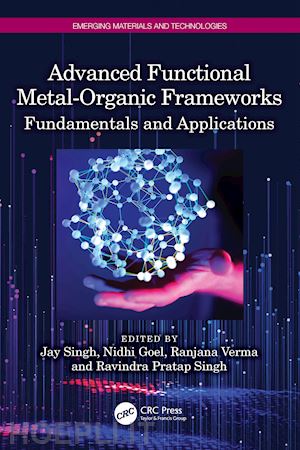Dr Jay Singh is currently working as an assistant professor at the Department of Chemistry, Institute of Sciences, Banaras Hindu University, Varanasi, Uttar Pradesh, since 2017. He received his PhD degree in polymer science from Motilal Nehru National Institute of Technology in 2010 and did MSc and BSc from Allahabad University, Uttar Pradesh, India. He had a postdoctoral fellow at National Physical Laboratory, New Delhi, Chonbuk National University, South Korea and Delhi Technological University, Delhi. Dr. Jay has received many prestigious fellowships like CSIR (RA), DST-Young Scientist fellowship, DST-INSPIRE faculty award etc. He is actively engaged in the development of nanomaterials (CeO2, NiO, rare-earth metal oxide, Ni, Nife2O4, Cu2O, Graphene, RGO etc.), based nanobiocomposite, conducting polymer and self-assembled monolayers based clinically important biosensors for estimation of bioanalaytes such as cholesterol, xanthine, glucose, pathogens and pesticides/toxins using DNA and antibodies. Dr. Jay has published more than 80 international research papers with total citations more than 3,600 and an h-index being 34. He has completed/running various research projects in different funding agencies. He has many edited/authored books (under pipeline) and has authored more than 10 book chapters of internationally reputed press for publications, namely Elsevier, Springer Nature, IOP, Wiley and CRC. He is actively engaged in fabricating metal oxide-based biosensors for clinical diagnosis, food packaging applications, drug delivery, and tissue engineering applications. His research has contributed significantly toward the fundamental understanding of interfacial charge transfer processes and sensing aspects of metal nanoparticles. Dr Nidhi Goel received her doctorate in chemistry, Indian Institute of Technology Roorkee, India. After postdoctoral research (Young Scientist) from the Indian Institute of Science Bangalore, Karnataka, India, she started her independent academic career as an assistant professor in theDepartment of Chemistry, Institute of Science, Banaras Hindu University, Varanasi, India. Her research focuses on developing strategies, based on supramolecular building approaches, for rational construction of functional metal-organic frameworks. Their prospective uses include magnetic, luminescence, and sensing applications. She is also working on topics such as drug design, medicinal chemistry, and chemical biology. Dr. Goel has published 51 peer-reviewed research papers and book chapters in reputed international journals/books. Moreover, Dr. Goel is editing several books with international publishers. She has been the principal investigator onthree research projects from the government of India, and has 15 years of research experience along with four years of teaching experience at theUG and PG level. She is also a regular reviewer of a variety of international reputed journals. Dr Ranjana Verma received her master's and doctorate in material chemistry from Tezpur University Assam, India, in 2012and 2017, respectively. Currently, she is working as a postdoctoral fellow under (DSKPDF) UGC funded in the Department of Physics, Banaras Hindu University, Varanasi, India, since 2019. Her research focuses on developing strategies based on synthesis, characterization, properties modification, design, fabrication, nanostructure and photocatalyst, photovoltaic cell and biofuel conversion. Their perspective includes solar photocatalyst and biosensing applications. Dr. Verma has received many prestigious fellowships like DST (NPDF), UGC (DSKPDF), UGC (JRF), CSIR (SRF) awards, etc. In addition, Dr. Verma has published various research papers (15) and has authored more than three book chapters for internationally reputed press, namely Elsevier, Springer Nature and CRC Press. Dr Ravindra PratapSinghcompleted his BSc from Allahabad University India and his MSc and PhD in Biochemistry from Lucknow University, India. He is currently working as an assistant professor in the Department of Biotechnology, Indira Gandhi National Tribal University, Amarkantak Madhya Pradesh, India. He has previously worked as a scientist at various esteemed laboratories globally, namely Sogang University, IGR Paris, etc. His work and research interests include biochemistry, biosensors, nanobiotechnology, electrochemistry, material sciences, and biosensors applications in biomedical, environmental, agricultural and forensics. He has, to his credit, several reputed national and international honors/awards. Dr. Singh has authored over60 articles in international peer-reviewed journals, more than 50 book chapters of international repute, and has editednine books. He serves as a reviewer of many reputed international journals and is also a member of many international societies. He is currently also involved in editing various books, which will be published in internationally reputed publication houses, namely IOP Publishing, CRC Press, Elsev












